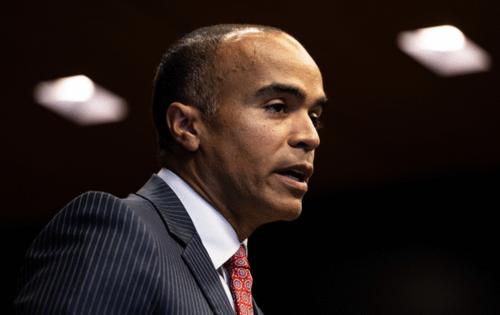Washington state leads lawsuit against Trump's 'Housing First' homelessness reversal
Published in News & Features
SEATTLE — Washington state Attorney General Nick Brown led a multistate lawsuit Tuesday challenging new homelessness funding restrictions by the Trump administration that could put 170,000 formerly homeless people nationally at risk of returning to the streets.
The lawsuit, filed in federal court in Rhode Island, seeks to block a policy shift announced by the administration this month that would steer federal homelessness dollars away from long-term, low-barrier housing and toward shorter-term shelters that impose sobriety and work requirements.
The changes would upend decades of stable "Housing First" funding supported by past Republican and Democratic administrations, potentially denying $120 million in annual homelessness funding to Washington state.
If the changes go into effect, "tens of thousands of people would likely have nowhere to live" by next year, Brown said at a news conference, noting the new rules were rolled out before Thanksgiving and Christmas.
"It is as if this policy comes straight out of a Charles Dickens story," Brown said.
The lawsuit was filed on behalf of Washington and 19 other states, along with the District of Columbia.
In announcing the policy changes, Housing and Urban Development Secretary Scott Turner argued they would move away from "failed 'Housing First' ideology," which he said "encourages dependence on endless government handouts while neglecting to address the root causes of homelessness, including illicit drugs and mental illnesses."
Those criticisms have been echoed by conservatives and others in Washington state, who point to persistent homelessness crises in Democratic-led cities like Seattle that have championed the housing first model.
But the lawsuit contends the changes announced by the Trump administration ignore ample evidence that such policies are effective and are "unlawful several times over."
The new HUD conditions were announced earlier this month, "without any meaningful public input" and seek to make changes not authorized by Congress, the lawsuit says.
In addition, the lawsuit contends the Trump administration is trying to illegally strong-arm states by seeking to deny homelessness funds over unrelated policy disagreements — such as state protections for transgender people and undocumented immigrants.
If they stick, the changes announced by the Trump administration could have big impacts on homelessness response in Seattle and King County, which receive about $65 million annually from the Continuum of Care, the HUD program that distributes the federal homelessness funds.
Local officials have been preparing for the changes, which have been telegraphed by the Trump administration's rhetoric criticizing homelessness funding in liberal cities.
But Brown and other officials said state and local governments can't make up the difference if the federal money is yanked.
Jennifer Schlenske, executive director of Justice Housing Yakima, said giving people housing allows them to be stabilized while they are offered other services like substance abuse treatment and job assistance.
"Pulling back core funding for permanent supportive housing is irresponsible and dangerous," she said.
Latae Mitchell, a Seattle resident who has experienced "chronic bouts of homelessness," said such housing, starting with a tiny home, helped her climb out of what she'd seen as "a bottomless pit."
"Once I arrived there and received services, I was like catapulted into this new space in life, said Mitchell, who has since worked for low-income housing providers and helped family members break free from unstable housing situations.
The lawsuit filed by Washington and the other states seeks a temporary order blocking the HUD changes and a more permanent ruling that the Trump administration's actions are illegal and unconstitutional. It also seeks an award of attorneys fees.
It was the 45th lawsuit filed by Brown against the Trump administration, including several that have won court rulings blocking administration policies as illegal.
______
© 2025 The Seattle Times. Visit www.seattletimes.com. Distributed by Tribune Content Agency, LLC.







Comments